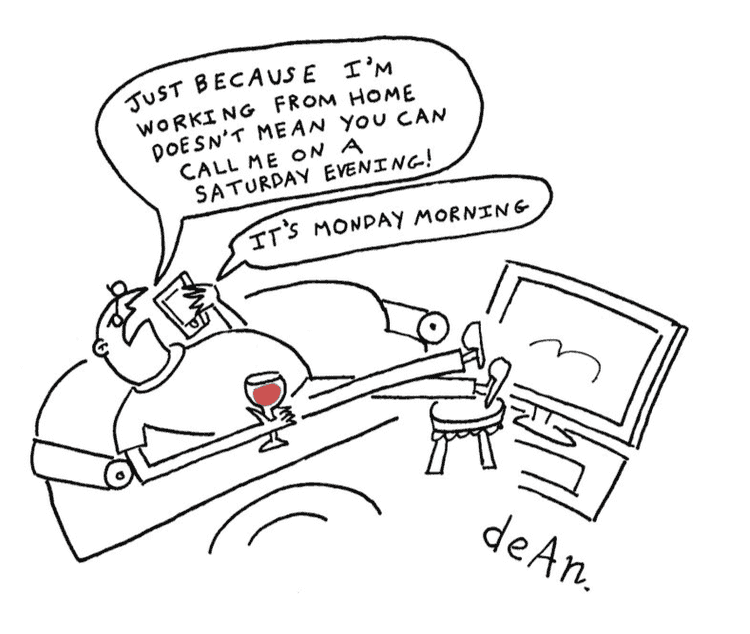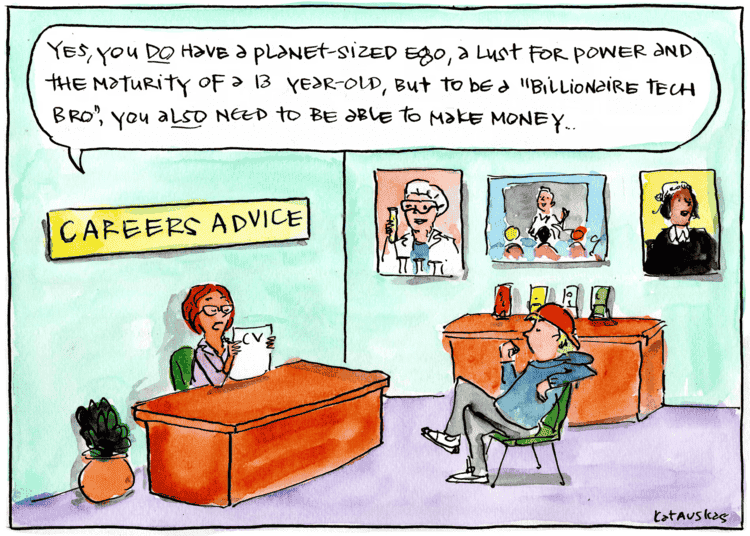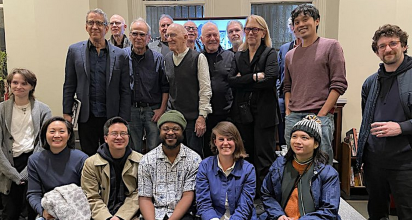CSotD: Funday Sunnies
Skip to comments
I’m not in the mood for politics today, which is to say that I’m feeling pretty positive about life and don’t want to spoil it. However, for those who insist, here’s Barry Blitt’s take on “The New Guard,” which they can find metaphorical — because it is — while the rest of us just enjoy his spot-on caricatures.

Wiley sucked me in with the first few panels of today’s Non Sequitur (AMS), because he didn’t reveal Lucy as the source until further down and so my initial reaction was that the Wampanoag — and eastern tribes generally — were certainly not dependent on horses. I’m not sure the Pilgrims even had any.
Good self-interested revisionism, Lucy, and no less accurate than the rest of the Thanksgiving Story.
The highlight of Parents’ Weekend at Camp Lord O’ The Flies was the re-enactment of the founding of the Iroquois Confederacy, which was written and directed by a fellow with ties to the Seneca Nation. The basic story was accurate, though the original negotiations took a whole lot more than an hour.
Each of the five nations — except for the Onondaga, who had rejected Hiwanta’s overtures — came in with their chief mounted on a horse that was led by someone on foot. In rehearsal, the director explained that, while horses were valued as high status possessions in Iroquois culture of the time, nobody was very experienced with them and so they had people to help control them.
It was years later that it occurred to me that there was a strong possibility in modern culture that a horse hearing applause from parents might startle and trample the audience, or at least throw the chief, who was riding bareback.
BTW, western Indians who indeed had and relied on horses also made, and used, saddles, and I’d say “But I digress” except that there’s no thread from which to digress today.
Still, it’s fun, and occasionally important, to puncture popular mythologies.
The Confederacy was likely founded before the arrival of Europeans and horses anyway.

In the Bleachers (AMS) offers a nice variation on the often-copied Charles Addams classic.

The Buckets (AMS) brings up a topic that applies to both dogs and kids. People who fuss over dog food end up with dogs who will eat this but won’t eat that. My dogs have eaten the same thing every day and therefore never questioned it.
Kids should also be trained with positive assumptions: Don’t ask your toddler, “Are you ready for your nap?” Just say “It’s nap time!”
As lawyers say, never ask a question unless you already know the answer.

Here’s a semi-quasi-political cartoon from Dean Patterson. Several countries have, or have proposed, “right to disconnect” laws that protect workers from having their employers call them on off-time, though it’s not much of an issue in the US, where workers will be very lucky to get this coming Friday off.
I’ll admit to being mystified by the matter. When I was in the newsroom, I wanted to be called if there was a problem with a story, and ditto when I was producing curricula and other special projects for schools.
There were a couple of times I ended up going back in to fix something, though most issues could be solved verbally. And there were a couple of times I wish someone had called me rather than screwing up something that could easily have been fixed.
As for remote work, I worked remotely for the last decade of my career, but I had definite goals and definite deadlines. There was a discussion of remote work on 1A this past week and something that came up was the difference between people whose output is easily measured and those who could be goofing off and nobody’d ever know.
I remember getting called when I was not just off-duty but on my way to Portland, Maine. Fortunately, I had my laptop with me and was able to pull over at a place with wifi so I could fix a page and resend it.
If I’d resented them calling me, I’d have quit and found a job I cared more about.

Bless Rat for suggesting this riposte in today’s Pearls Before Swine (AMS).
I try to be sympathetic to issues and expressions that seem likely to upset people, but it does sometimes become overly precious.
F’rinstance, it strikes me as silly to warn listeners that a report on the war in Gaza includes talk of death and injury. Those elements seem baked into the topic, wouldn’t you think?
But sometimes thinking has little to do with it. On Wait Wait yesterday they referenced a decision by a British labor board that calling a man “bald” is sexual harassment because most bald people are men.
The weird part is that the complainant was called a “bald c***,” that second word an insult tossed around casually in the Commonwealth but strictly forbidden in the US and, however you take it, far more gender-specific than “bald.”
There are a lot of expressions that were once common but no longer are. People used to insist they meant no offense by the expression “I jewed him down on the price,” but no decent person says that anymore.
Like some others, it’s shifted from “get over yourself” to “of course you’re right.”
Civilization is an on-going process.

We started today speaking of stooges and of cartoons that could be political but could also not be, and here’s another: Fiona Katauskas offers this analysis of bros and wannabes.
It occurs to me, without doing a great deal of actual analysis, that a lot of billionaire tech bros are the type who, as the phrase goes, were born on third base and think they hit a triple. Elon, obviously, but Facebook was the brainstorm of Harvard students.
Wozniak and Jobs weren’t from wealthy families but they certainly didn’t rise from the gutter, either. And if they were born on second base, that’s still considered scoring position.
“Them who has gets, and them what don’t won’t,” the Andrews Sisters sang, though I’d like to think their song is right that “The rich get much richer, and the poor have nothing but fun.”
And god bless the child who has his own, as a better singer said in a better song.


Comments 7
Comments are closed.